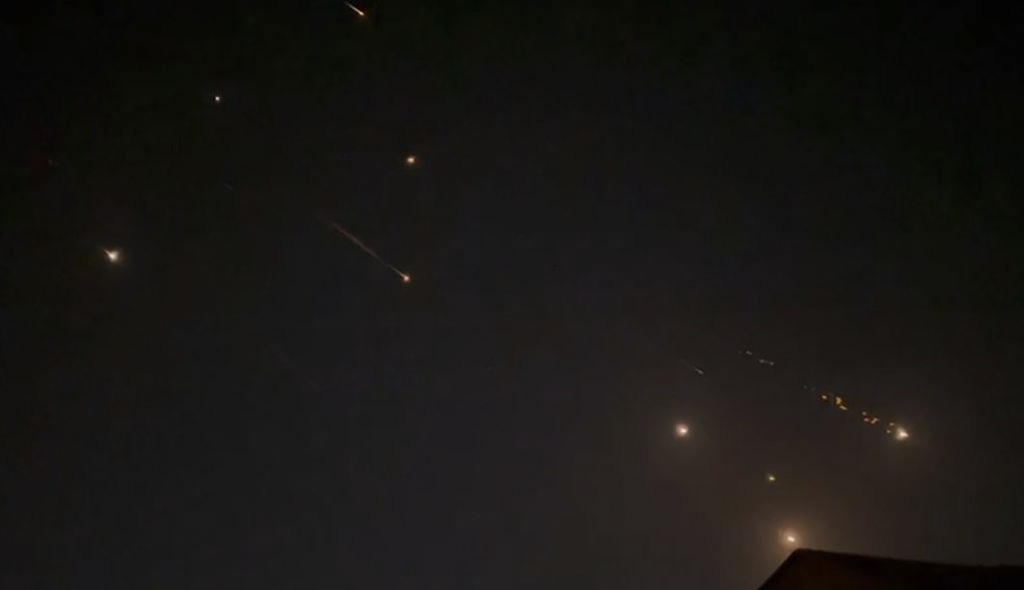
This was not the actual Iranian attack.
This was the "attack" prearranged for show between Iran and the Biden administration through backchannels.
It's an attack that allows Iran to show off that it can reach Israel (look at those lights over the Temple Mount), while not inflicting any real damage.
The Biden administration has already made it clear that it will oppose any Israeli response. There will be public condemnations and warnings about escalating the conflict further.
So does that mean it's over? No.
Iran did burn up some resources doing this, but apart from the morale boost of doing it, it set out to test U.S. and Israeli defenses. And the defenses did what they were supposed to.
However, had Iran actually been trying to launch a serious attack, it would have used its Hezbollah, Houthi, Iraqi and whatever is left of its Hamas proxies to saturate local air defenses.
Hamas's Oct. 7 attack, planned by an Iranian Islamic Revolutionary Guard Corps general who was killed in an alleged Israeli strike in Damascus on April 1, carefully analyzed Israel's border and air defenses, its infrastructure, and command and control, in search of weaknesses to exploit. And did so effectively. That is what a serious direct Iranian attack would have done. And this was not it.
So what will Iran do next?
Iran is not currently ready for a regional war and prefers to use its proxies to do its dirty work until that day comes. Oct. 7 was an example of that, as are the Houthi attacks on shipping in the Red Sea and the Iraqi Shi'ite attacks on a U.S. base in Jordan that killed three servicemembers.
But Iran will do things beyond this light show, which was largely meant to reassure the Biden administration that its "diplomatic tools" have successfully solved the problem. That's an illusion that Iran has used to allow it to build up its nuclear weapons program, to sow dragon's teeth around the region and to cut off international shipping at will.
The Iranian regime knows that America could destroy it. It also learned under Obama that its greatest defense is convincing D.C. elites that diplomacy will successfully deescalate any conflicts with the regime.
By starting a crisis and then allowing itself to be talked into standing down a little bit, before beginning the cycle again, Iran has been able to expand its sphere of influence without paying a price. It will strike more seriously, but it will do so in a way that will allow it to go on manipulating its diplomatic collaborators in D.C. and building power in the region.
Daniel Greenfield is a Shillman Journalism Fellow at the David Horowitz Freedom Center. This article previously appeared at the Center's Front Page Magazine.


